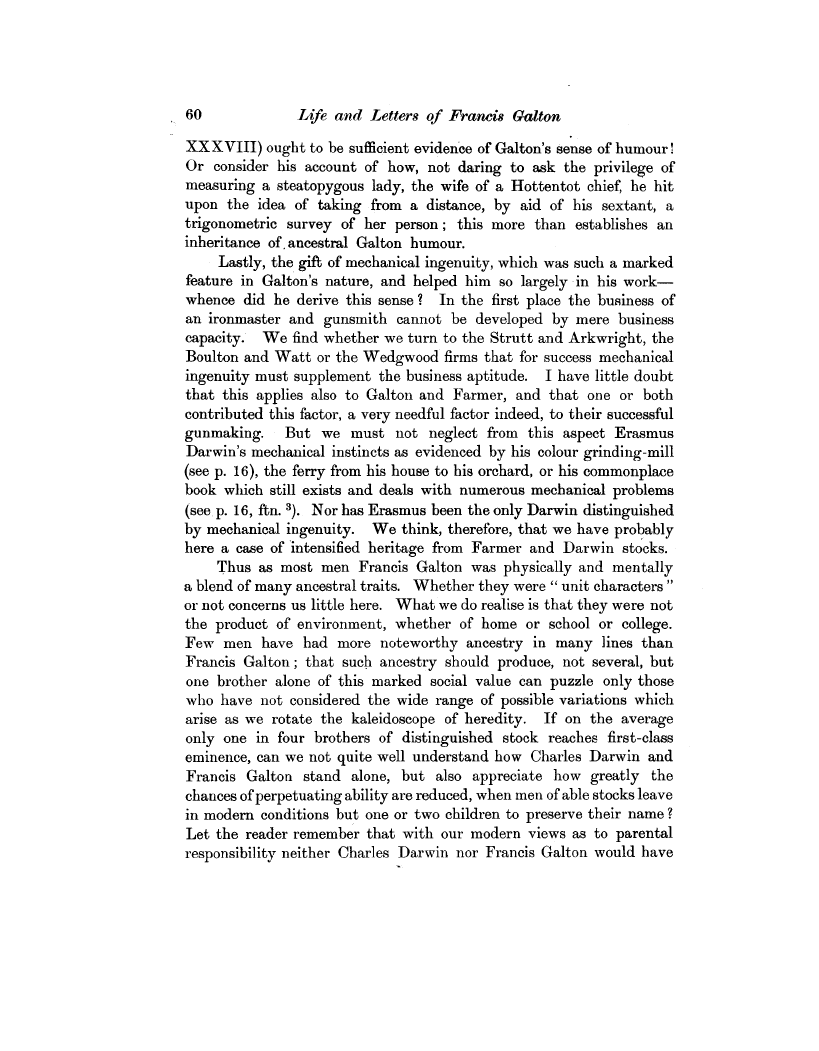60 Life and Letters of Francis Galton
XXXVIII) ought to be sufficient evidence of Galton's sense of humour! Or consider his account of how, not daring to ask the privilege of measuring a steatopygous lady, the wife of a Hottentot chief, he hit upon the idea of taking from a distance, by aid of his sextant, a trigonometric survey of her person ; this more than establishes an inheritance of. ancestral Galton humour.
Lastly, the gift of mechanical ingenuity, which was such a marked feature in Galton's nature, and helped him so largely in his workwhence did he derive this sense ? In the first place the business of an ironmaster and gunsmith cannot be developed by mere business capacity. We find whether we turn to the Strutt and Arkwright, the Boulton and Watt or the Wedgwood firms that for success mechanical ingenuity must supplement the business aptitude. I have little doubt that this applies also to Galton and Farmer, and that one or both contributed this factor, a very needful factor indeed, to their successful gunmaking. But we must not neglect from this aspect Erasmus Darwin's mechanical instincts as evidenced by his colour grinding-mill (see p. 16), the ferry from his house to his orchard, or his commonplace book which still exists and deals with numerous mechanical problems (see p. 16, ftn. 3). Nor has Erasmus been the only Darwin distinguished by mechanical ingenuity. We think, therefore, that we have probably here a case of 'intensified heritage from Farmer and Darwin stocks.
Thus as most men Francis Galton was physically and mentally a blend of many ancestral traits. Whether they were " unit characters " or not concerns us little here. What we do realise is that they were not the product of environment, whether of home or school or college. Few men have had more noteworthy ancestry in many lines than Francis Galton ; that such ancestry should produce, not several, but one brother alone of this marked social value can puzzle only those who have not considered the wide range of possible variations which arise as we rotate the kaleidoscope of heredity. If on the average only one in four brothers of distinguished stock reaches first-class eminence, can we not quite well understand how Charles Darwin and Francis Galton stand alone, but also appreciate how greatly the chances of perpetuating ability are reduced, when men of able stocks leave in modern conditions but one or two children to preserve their name? Let the reader remember that with our modern views as to parental responsibility neither Charles Darwin nor Francis Galton would have
